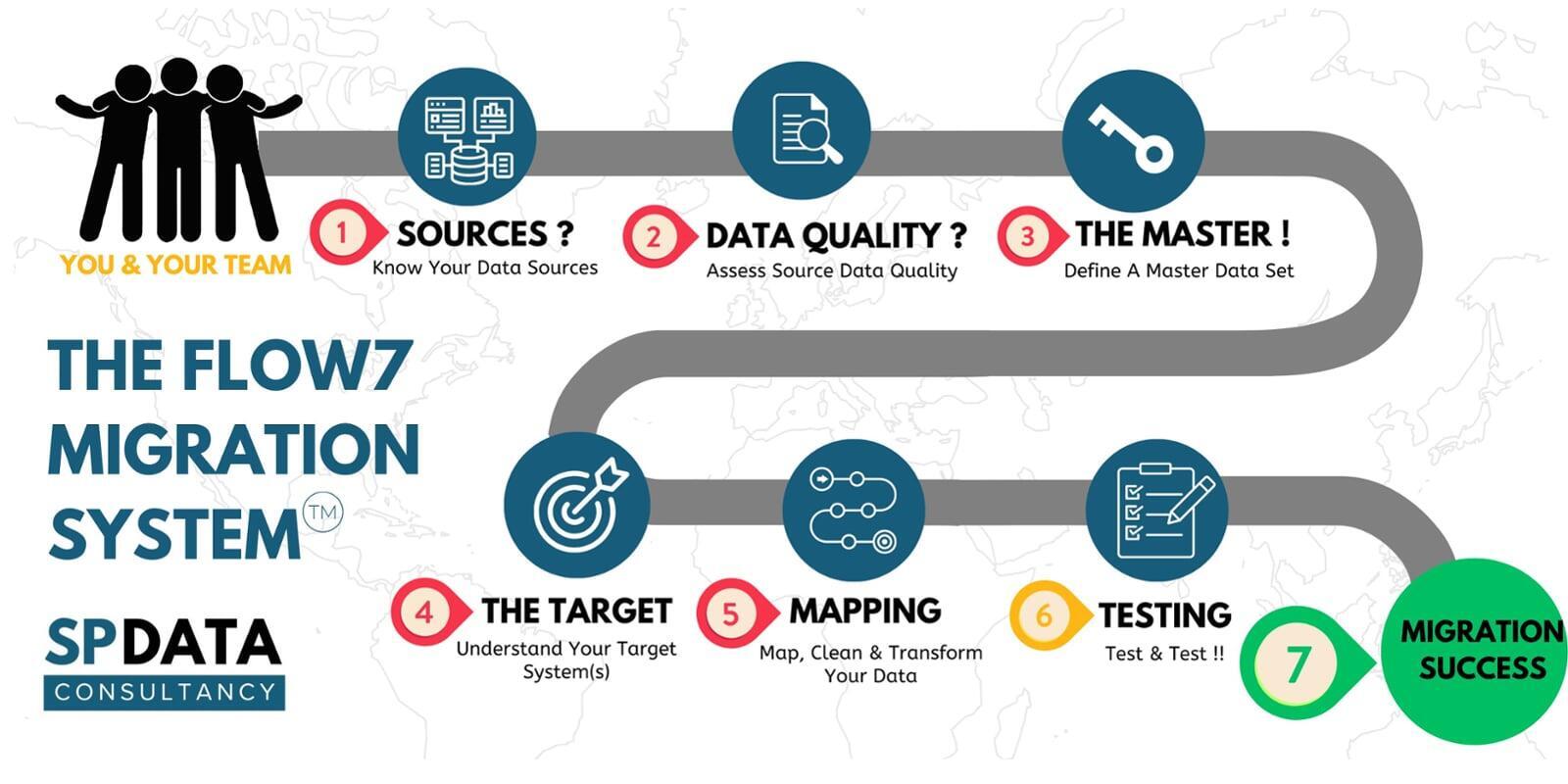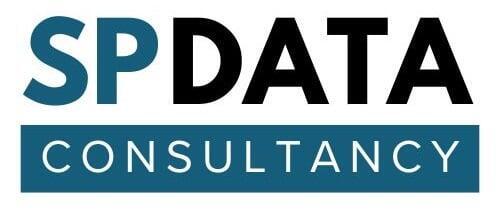The Flow7 Migration System
Data Migration with Purpose, Precision, and Peace of Mind
Using My 7 Step Data Migration Success Framework Helps Me Get Your Data From A to B Successfully!

Step 1 - Data Sources
Step 2 - Data Quality
Step 3 - Master Set
Step4 - Target System
Step 5 - Mapping
Step 6 - Testing
Step 7 - Migration
Step 1 - Data Sources
Migration Assessment Part1
Your Data Sources - we work with you to define your data sources that will be part of your migration.Following a structured approach we investigate your data sources.
Key milestone tasks include:
- Creating a comprehensive data inventory of all potential data sources across the organization.
- Documenting technical details for each source, including system type, name, version, and architecture.
- Identifying data owners and experts for each source, both technical and business-focused.
- Assessing data export or extraction complexity, is it manual, how difficult, how long does it take?
- Documenting business process priority, helps plan what needs the most attention during migration.
- Defining migration success for the business, what factors will mark the success of the project from a business perspective.
Step 2 - Data Quality
Migration Assessment Part2
We work with you to assess your data domains (areas/entities/modules), quality, completeness, accuracy, volume, growth and counts.
Example areas to be investigated with you:
- Measuring data and record volumes and counts - Use database queries or export tools to get accurate metrics.
- Sampling data for accuracy and completeness - Examine random record sets across key entities.
- Comparing data between your different source systems - Look for inconsistencies where the same information exists in multiple places
- Talking to your team - Interviewing staff about how they use and maintain data.
- Documenting processes - Mapping how information flows through your business.
- Profiling data if required.- Use simple analysis to identify patterns, outliers, and problems.
Step 3 - Master Set
Definition of your master data set
We work with you to verify and pull together your data sources into a "One Version Of Truth"
Step4 - Target System
We look at the target system(s) with reference to the source systems
Some tasks that need to be looked at:
- Document all systems that will receive migrated data, verify exact system names, versions, and editions
- Evaluate target system maturity and stability
- Document & test target system import capabilities and limitations with sample data
- Understand how business processes will change in new systems
- Identify user experience requirements for the new environment
- Document any integration points between multiple target systems
- Assess reporting and business intelligence capabilities
Step 5 - Mapping
We Map Your Source Data to The New System
We help you map your current data using data relationships and identified data structures to the new system or data structure. For small businesses, effective data mapping doesn't necessarily require enterprise-level tools or methodologies.
We use a practical method and/or train your staff:
- Starting with a comprehensive inventory - List all data elements that need to migrate
- Creating a simple mapping document - For each element, document source, target, and transformation rules
- Prioritise based on your business impact - Focus most attention on data that directly affects operations
- Develop cleansing requirements - Identify what must be cleaned before, during, and after migration
- Test with real samples - Verify transformation rules with actual data samples
- Refine iteratively - Update any mapping rules based on test results
This methodical approach helps manage mapping complexity without unnecessary overhead.
We Clean & Transform Your Records
We can clean and apply transformation rules and mappings between the chosen systems based on agreed scope or can help pre-clean the data prior to data extraction.
Step 6 - Testing
We Run Sample Migrations for You to Test
Test imports are imported for you to check to make sure the data is correct before we run the full migration.
Testing preparation needs to involve:
1. Defining Clear Testing Objectives -What specific outcomes are you measuring?
2. Identifying Test Cases Based on Business Impact -Prioritise testing scenarios based on processes, volumes, compliance and problem areas
3. Creating Realistic Test Data Sets -Develop test data that represents all types of records in your system
4. Documenting Test Scripts-Create clear instructions for each test scenario.
5. Establishing The Testing and Issue Management Process-Define how problems will be reported and documented
6. Involving the Right People - this is Key!! -Ensure testing involves End-users who understand business processes and decision makers
Step 7 - Migration
We Start your migration and will update you every step of the way for your new system Go Live.

